If you are looking for a high performance web hosting service that's highly reliable, easy to use and affordable, Cloudways may just be the best option for you.
Cloudways is a managed hosting platform that's very different from the usual web hosting providers. Rather than running and managing their own servers like how typical web hosting providers do, Cloudways works together with world class cloud hosting providers instead, to give you access to high performance servers that will usually cost you a bomb.
If you want to understand a little better about cloud hosting, then read on. Or else, feel free to skip to the section where I go more in-depth about Cloudways.
Now if you think that high performance servers from big companies such as Google and Amazon are going to be costly, you are badly mistaken! Due to the economies of scale and many other factors, these are one of the most cost efficient places to host your website online. It's no wonder big brands and businesses love to use cloud hosting for their websites.
On the other hand, traditional web hosting providers are much much smaller in size (physical and capital wise), and they mark up their prices much more steeply if you compare them side by side, in order for them to stay profitable. In return, they have to compensate by providing top-notch service and support, and optimizing their platform to be as beginner-friendly as possible.
If we take a look at prices from DigitalOcean, a major cloud hosting company, we can see that the cost starts from $5 per month. When compared to a traditional web hosting provider, Bluehost, $9.99 per month (regular rate) gets you shared hosting for 1 website. In this article, we'll see why this $5 goes a long way when compared to a $9.99 shared hosting plan.
I've moved over many websites from shared hosting to cloud hosting for my clients.The feedback I always get from them is how impressive the page load speeds are after the switch. The main reason why is because shared hosting environments are usually overcrowded; you're sharing the server with many other websites. So visitors to your website are needed to "queue up" in order to access and load your website.
On a cloud hosting plan, this kind of situations will never happen as your server resources are dedicated solely to your websites. Just this concept alone makes cloud hosting a much more reliable form for web hosting.
But it's important to know that shared hosting is not always bad. Sometimes websites on shared hosting can perform decently well. But speaking from countless experiences, it's never guaranteed. You have no control over what other websites are sharing your space, or how many other websites are being squeezed into the same server. These numbers are usually not transparent, and you can expect the web hosting company to withhold such information from you. Therefore, I've seen websites that used to have decent page load speeds, suddenly becoming very sluggish the very next month.
Shared hosting can be used for small personal projects, but I'll not recommend putting a production website on there. I've experienced too many cases of unreliable page load speeds, and I find it unacceptable for a business to be running a website that can't guarantee a good browsing experience for their customers all the time.
Small to medium sized companies are really suited for the cloud hosting environment. Plenty of larger companies are also using cloud hosting, but some may have very strict requirements on data security compliance, where it's better for them to purchase and run dedicated servers for themselves.
So long as you are running a website for your business, reliability should be a very important factor. Cloud hosting provides that level of reliability at an affordable price.
Small to medium sized companies also tend to experience sudden growth especially from viral marketing campaigns, leading to traffic surges on their websites. The nature of cloud hosting is that it's easily scalable as it's "on the cloud". Companies can increase their server resources on the fly in anticipation of the increased incoming traffic.
In general, there are 2 ways for a consumer to access cloud hosting: Unmanaged and Managed.
When a cloud hosting provider gives you an unmanaged server, you'll receive the server space and resources, and also usually an option to install an operating system on it. You'll have to handle everything else on your own after that point. From my experience, support will not assist in web hosting matters which are out of their control, 99% of the time. So you do need a fair amount of knowledge in server administration and setting up web servers in order to makes things functionable and running.
On a managed server, this usually means that you're being provided a server that has been set up and constantly maintained to a set requirement, such as for web or WordPress hosting. You are likely able to set everything up without needing advanced computer networking skills. Such managed services means that you'll also be expecting to pay a slightly higher price due to the added value you're getting.
Despite being the cheapest way for you to access cloud hosting, I do not recommend unmanaged servers if you are just a website or business owner with no computer networking knowledge. You'll be saving a few bucks a month, at the expense of security, reliability and lots and lots of your time.
If you have a strong knowledge in server administration, then by all means make use of your skillset and have fun playing around in an unmanaged environment. But if you are a blogger, ecommerce site owner or running a business in a different field, you should completely avoid this option, unless you have a dedicated IT team or person that's able to set up, run and monitor your servers for you. Here's why.
Whatever goes on in your server is fully up to you to manage. You'll have to set everything up yourself. Support will not access your files to work out any issues for you. You're likely to only get basic infrastructure support.
When I first got into setting up my own servers, I've tried requesting for server administration support with Linode's support team. However, they reminded me that my request was outside their scope of support, and I was pretty much left to figure this out on my own.
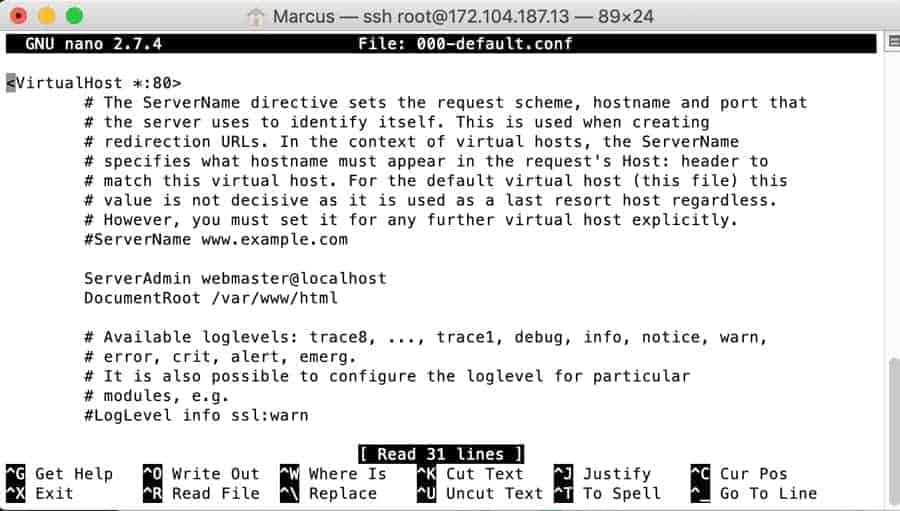
You'll need to know how to work the console if you are configuring a web server. This means knowing how to access your servers via SSH (secure shell) using programs such as Terminal on Mac or Command Prompt on Windows. This reason alone deters most from choosing an unmanaged server for hosting their websites.
The work doesn't end at the initial setup. You'll have to constantly access your server and make sure that security patches are being applied as they get released. You'll also need to be able to monitor your server performance and know how to spot or anticipate problem areas.
Under the most basic plan of major cloud hosting companies, you'll be saving around $5 a month if you choose to work with an unmanaged server. If everything I mentioned above is not worth the additional $5, by all means learn how to do it all on your own. May I remind you that it takes up a lot of your time and it's barely worth the pain and effort if you have no specialized knowledge in this field.
If you want to see how it's like trying to configure a web server, take a look at this tutorial on setting up virtual hosts, something that's needed if you want to run multiple websites on a server. You'll understand the level of technical knowledge required to operate with unmanaged servers.
For most website owners, using a managed platform should be the right approach. This means that there will be additional costs. However, it's very worth it as you'll have a server that's configured and optimized for web hosting.
Some companies may charge an arm and a leg for this, while others charge just a couple of dollars more than what you would pay for an unmanaged server. Therefore, it's important to identify the right hosting company to suit your needs so that you pay a fair price for your requirements.
Cloudways is a company that I highly recommend for small to medium business owners that require a fast and reliable managed cloud hosting solution for their business websites. Furthermore, they are priced very affordably and cater to budgets and requirements of all sizes. I'll talk more about them later in this article. But first, let's take a look at the benefits of using a managed platform.
There's so many things that are set up and configured for you when you choose to host your website on a managed server. Here are some typical ones.
If you are reading this article, you should already have heard about the leading CMS in the market, WordPress. There are many reasons why many business owners are choosing WordPress as a solution to build their website.
On a managed server, there's usually a one-click option for you to install a fresh copy of WordPress on your server. Otherwise, you'd have to manually transfer all the core files and configure the database to get it to work.

Once in a while, websites get overloaded due to various reasons such as a script gone rogue or a surge in traffic. This results in your CPU load or memory usage shooting through the roof. Sometimes you'll experience configuration errors as a result of the overload, which may cause your website to go down. You'd typically have to restart the web server or database to bring your site back to life.
There are tools such as Uptime Robot to monitor and alert you when your website goes down. But if it goes down while you are asleep, then you can expect your site to be out of action for hours until you fix it.
With auto healing, issues like these will be detected quickly and a restart will be performed. You can manually create a script using cron scheduling to perform the same function, but it requires technical knowledge to do so.
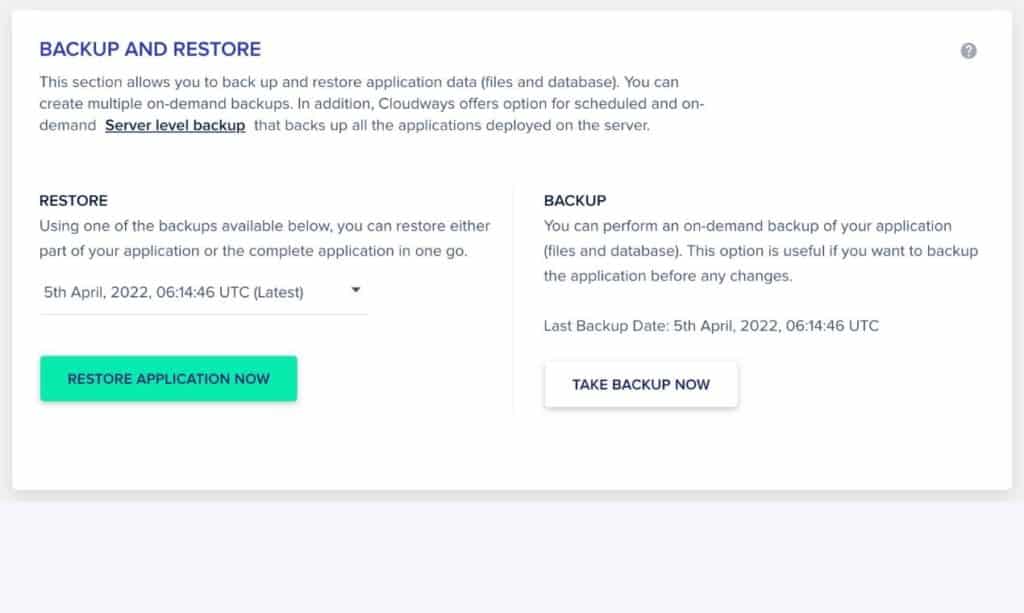
Server backups are a crucial element for ensuring complete and reliable data recovery of your websites when things go wrong. Some managed hosting providers provide server backups for free, while others may charge a nominal fee.
This is a highly useful feature that you will get to enjoy if you are on a managed server plan.
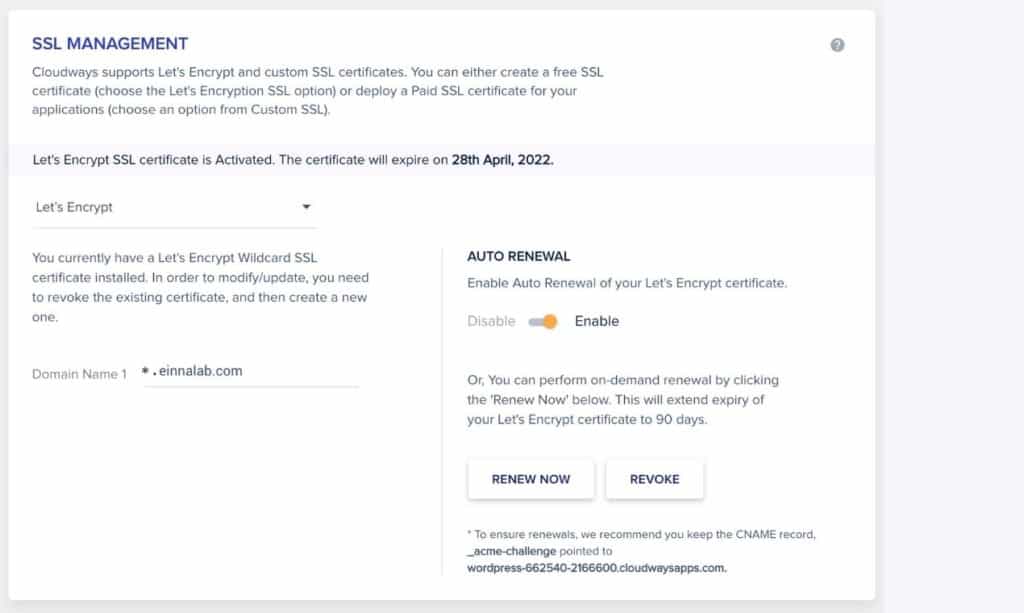
SSL configuration is also easy to set up in managed servers. You'll be able to generate and configure your SSL certificate within a few minutes, allowing your website data to be delivered securely via HTTPS. This is important not just for the security of your website, but it's also a ranking factor by Google.
Websites that have a caching system will help to improve page load times for your visitors, giving them a good experience while navigating your website. Managed servers may have a caching system such as Varnish that comes as part of their package.
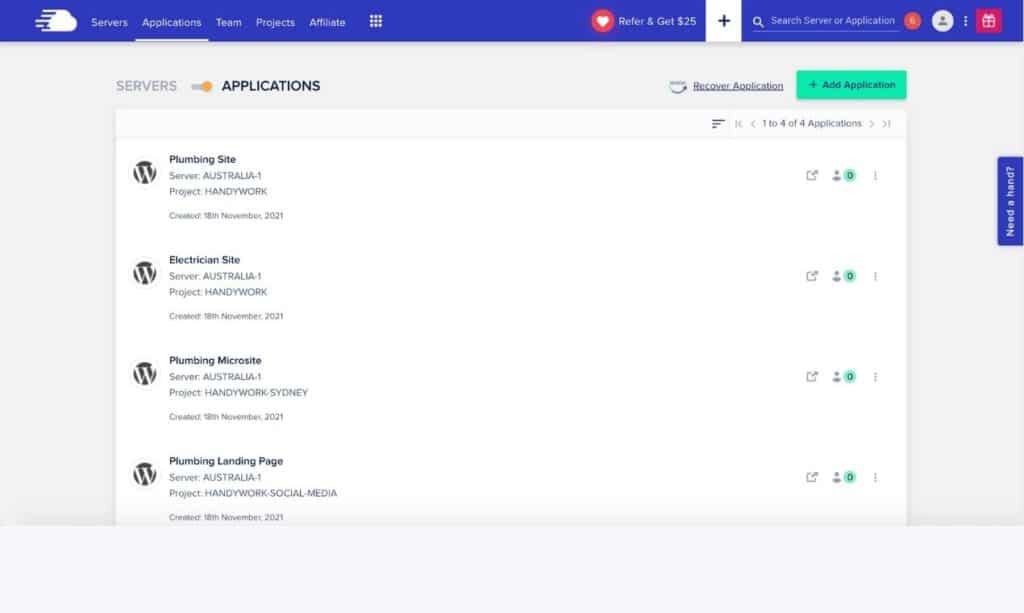
Most managed servers give you the ability to launch multiple websites in a single instance. If you have multiple websites or microsites, you'll be saving money from signing up for more packages to host them if you were to use traditional hosting plans.
Managed servers also make this easy for you to do so, as compared to needing to set up virtual hosts manually to achieve the same functionality.
Managed servers are designed to make it easy for anyone to use them, no matter how much technical knowledge you have. You'll be able to manage and configure the above points on a user-friendly graphic interface, without needing to know how to work with server-side code.
Most of the time, you'll be able to set things up with just a couple of mouse clicks.
The level of support and service varies from company to company. But in general, the provision of support is included as part of a managed server plan, as opposed to an unmanaged server plan.
Their goal is typically to help you get your website up and running, and providing support along the way is an important process to make things run smoothly.
Normally, the support team will guide you step by step on how to perform a certain task, or they may even assist you with the task themselves.
Having support available 24/7 is important for businesses with websites. This is to ensure all technical faults can be rectified efficiently so that downtime can be minimized.
By using a managed server, you'll have a peace of mind knowing that your server is well taken care of in terms of security. Managed servers usually handle server updates for you automatically so that you do not have to do it yourself. It's important to patch up security vulnerabilities as soon as possible, or you'd be be left with a server that's unprotected for an extended period of time.
If this is your first time creating and hosting a website, you'd typically gravitate towards shared hosting due to the affordable price. This is fine if you are creating a simple website for your personal projects. But if you are running a business, I would suggest skipping the shared hosting "phase" and jumping straight into cloud hosting. From my observations, those that are serious with their websites tend to move away from shared hosting quite early on. You can save yourself the hassle of a tedious migration too.
For small and medium businesses who have basic to medium requirements, I would definitely recommend Cloudways. Cloudways is one of the most affordable choice in the managed cloud hosting market. They are reliable, secure and a well-known brand.
I've used Cloudways for my clients, and have received nothing but positive comments on the page load speed and reliability from them.
Cloudways give you access to world class cloud hosting companies such as Google Cloud, Amazon AWS, DigitalOcean, Linode and Vultr. They provide their own user dashboard, along with lots of functions and features together with the cloud server of your choice. Everything is configured for you and all you have to do is to launch your website.
Cloudways is compatible with major CMS platforms and frameworks such as WordPress, Magento, PHP and Laravel. You'd be getting your business site up and running in no time.
It's incredibly easy to use Cloudways. You can access their control panel yourself and configure things up with barely any assistance. Furthermore, if you are coming from a shared hosting plan, you should be able to notice an increase in your page load speeds right away.

With access to 5 major cloud hosting providers, you'll be able to select a server located in a region that's closest to your target audience so that you'll provide the best page load experience for them. You'll be able to find data centres all over Asia, America and Europe.
Worried that your website outgrows your server capabilities? Cloudways makes it easy to move up to a more powerful plan in just a few clicks on their dashboard. You do not have to pay any extra fees for migration of your site.
There's 24/7 customer support available via live chat. The team will guide you through every step of setting up if that's what you need. If you are facing a problem, rest assured their support is there for you 365 days a year.
And if you are someone who prefers to receive support via a phone call, you can upgrade to a premium support plan to get direct phone support from a dedicated account manager.
You'd be surprised that Cloudways have similar prices to many shared hosting plans. They are very transparent with their pricing, and they do not have hidden costs and sneaky renewal price increase like how you experience from many shared hosting providers.
A server from Cloudways starts from just $10 per month, and it's powerful enough to run a few starter WordPress websites without issues. There are no sneaky hidden fees, so you'll also never get a shocking increase in your bill the following year. There is a reason why Cloudways is trusted by over 70,000 agencies, developers and small businesses!
A business website needs to load fast. Most companies are not able to provide production-level server performances on their shared hosting plans, due to the nature of not being able to provide dedicated resources to every single site.
Furthermore, on shared hosting, you may notice your website struggling to keep up especially if it starts bringing in more traffic, or if you are using resource-heavy functions within your website such as ecommerce.
So when you move over the Cloudways, the first thing you'll notice is the impressive page loading speeds. Together with the Varnish cache that's also pre-installed by Cloudways, you'll have a quick loading website that's comparable to those of larger establishments and enterprises. You'll never want to go back to shared hosting after using Cloudways!
No hosting company is perfect. There are some downsides to using Cloudways compared to other companies, but they are manageable issues.
Lots of hosting companies throw in a few mailboxes for your emails, but not Cloudways. The reason is that Cloudways is more focused in creating the best experience in hosting your website, and they don't deal with anything else.
However, they are easily integrable with an external company, Rackspace, which can be purchased as an add-on within your dashboard itself. With Rackspace, you'll be able to use an email address of your own custom domain ([email protected]).
As an additional benefit, if you were to purchase the Rackspace add-on through Cloudways, you'll enjoy a highly discounted price of just $1 per user/month, as compared to their cheapest plan at $2.99 per user/month if you were to buy directly from them.
SMTP is what allows your website to send out emails, such as password reset emails, order notification emails and other transactional emails. Shared hosting plan usually have this built into their servers, but you won't find this with Cloudways as not all cloud hosting providers open up the email ports for use.
However, Cloudways have definitely solved this issue by making it easily integratable with Elastic Email too. This is an inexpensive add-on at only $0.10 per month for 1000 emails. It's a rate that's also cheaper than if you were to buy directly from them.
If you have never hosted a website or attempted to before, you might get a little confused. This is normal for complete newbies, and the best way to learn is to do it yourself. Once you get the hang of things, you'll be quick in setting things up in no time.
I promise you that it's well worth your time learning the steps on how to setup your hosting.
There are a few big name companies offering managed hosting services in the market. Here are some recommended ones.

Kinsta is a premium managed WordPress hosting company with over 23,000 companies using their service. They are at the top of the game when it comes to support and service. Other companies do not come close.
With Kinsta, you'll be assured that your website is in good hands. However, this comes at a premium price too. It will cost you $100 per month to be on their 5 website plan.

Flywheel is also another reputable company providing managed hosting as part of their service. They have more affordable plans compared to Kinsta, but they have much lesser server locations to choose from. Their most popular plan costs $30 per month, which gives you 10gb of storage and 25k monthly visits for a single website.

WPEngine is similar to Kinsta in that it provides impeccable support and service on top of the fast loading servers. They have lesser server locations than Kinsta, but they are known to have very strong security features.
WPEngine is a great choice for those who don't mind paying a premium price for a peace of mind. Their standard price costs $300 per year for a single website with 10gb storage and 25,000 visits per month.
Google Cloud Amazon Web Services are the two biggest companies of the list. They have excellent server infrastructures in various regions around the world. If you trust the Google and Amazon brand, then these are the best options for you.
DigitalOcean, Linode and Vultr are also major companies with data centres all over the world. They are not as huge as Google and Amazon, but they are well known brands in the industry that provide world class cloud hosting. DigitalOcean is also a listed company on the New York Stock Exchange. You'll enjoy much cheaper prices with these options while having very similar server performances as what Google and Amazon can provide.
I usually start off by recommending DigitalOcean to my own clients, as they have been very reliable and have data centres located all over the world. Plus, their starting price on Cloudways is only $10 per month.
Cloudways has a trial that lets you test out their platform for 3 days without a credit card. If you find the platform is suitable for you, you can upgrade to a full account to unlock the full potential of the platform.
Click here to start your trial with Cloudways.
Cloudways just introduced the availability of Vultr High Frequency instances on their platform.
Now if you're not familiar, Vultr is a global cloud hosting provider with 17 data center locations worldwide. Their high frequency compute plan has been making waves in the cloud hosting space since they launched it in 2019.
With the new Vultr High Frequency plans in their lineup, it means that you get an even more powerful hosting option while still being able to stay with Cloudways.

Vultr has been providing cloud hosting since 2014. They have really affordable compute plans, and are a highly reputable name in the cloud hosting space.
In 2019, they released their high frequency plans, which are a step by from their standard instances. The high frequency plans simply has more superior hardware, catered for more demanding requirements.
Here are the 2 main upgrades you get with the high frequency plan:
With 3+ GHz processing speed, it means you have more power to handle processing-intensive websites.
Also, traditional SSDs tend to be the area where speeds get bottlenecked at. With the new and extremely fast NVMe SSD, you can practically eliminate this bottleneck. NVMe SSD when compared to SATA SSD (just one generation back), writes data and seeks data 4 times and 10 times faster, respectively!
Both upgrades have a direct influence on your website speeds, and you will likely see a distinctive difference and improvement. In fact, Vultr themselves claim that the storage and processing benchmarks exceed standard compute instances by up to 40%.
Being a popular and established company, it's no surprise that Vultr has 17 data center locations worldwide to cater to customers globally. They span across the US, Canada, UK, Europe, Asia and Australia. As of writing, here is a list of where their data centers are located at:

With Cloudways, you get to access to hosting your websites on Digital Ocean, Vultr, Linode, AWS or Google Cloud, without having to configure the servers or perform optimization and frequent server updates manually.
This means that non-techies can easily host their websites on these powerful and popular data centers at a very reasonable price.
You simply purchase a plan, deploy an instance, and Cloudways will handle everything else for you, such as server configuration and optimization, as well as the installation of WordPress.
In comparison, you do not get such features and support if you were to launch your instances directly with the cloud hosting providers.
Cloudways will handle everything that is server backend related. Not only are your servers tuned for performance, they are also preloaded with Varnish Cache, to boost the performance of your websites. Furthermore, you never have to perform server updates as Cloudways does that for you too.
Cloudways provides different tiers of support. Their advanced and premium support plans even have plugin and theme conflict troubleshooting within their scope. However, their free support tier is good enough for the typical user, and covers infrastructure and platform support. With that being said, the quality of support you receive from Cloudways is just outstanding.
The Vultr High Frequency plan on Cloudways starts at $13 per month, which is only $2 more than the $11 standard Vultr plan. With this plan, you will be equipped with a 3+ GHz CPU, 32 GB of NVMe SSD, 1024 MB memory and 1 TB bandwidth, powerful enough for a mid-level, medium traffic WordPress website.
The high frequency plan has a direct influence on your site speeds as compared to the standard plan. You will definitely be able to observe better performance and get your money's worth.
However, if you are absolutely satisfied with your current site speeds and performance, or if your website is not processor-intensive, then there may not really be a need for that extra boost.
On the other hand, if you are someone that just wants the best site speed possible, then $2 a month extra for the performance boost seems like a really great deal.
So long as you are already using a plan from Cloudways, moving over to the new high frequency plans by Vultr is a simple process.
Step 1: Log into your Cloudways dashboard and locate the server you want to perform the upgrade for.
Step 2: Click on the 3 dots icon on the very right, followed by 'Clone Server', then confirm the action by clicking on 'Yes'.


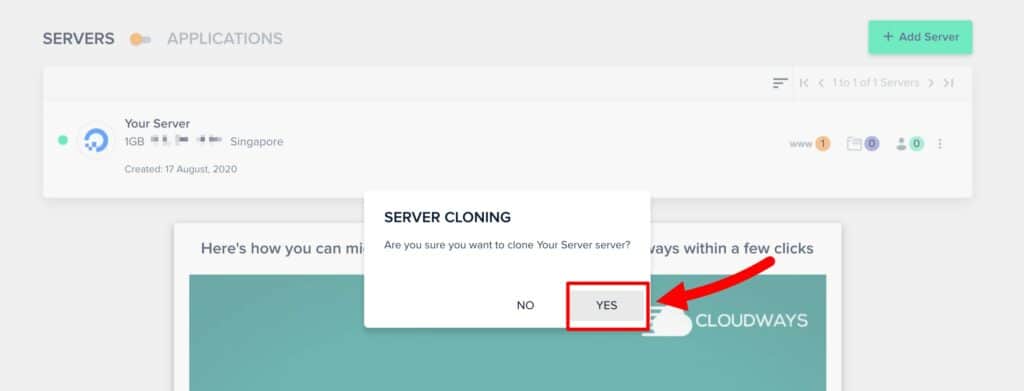
Step 3: You will then be brought to a page where you can choose your infrastructure. Select 'Vultr', then on the dropdown menu, choose 'High Frequency'. Then choose your memory size, preferred server location and finally click on the 'Clone Server' button.
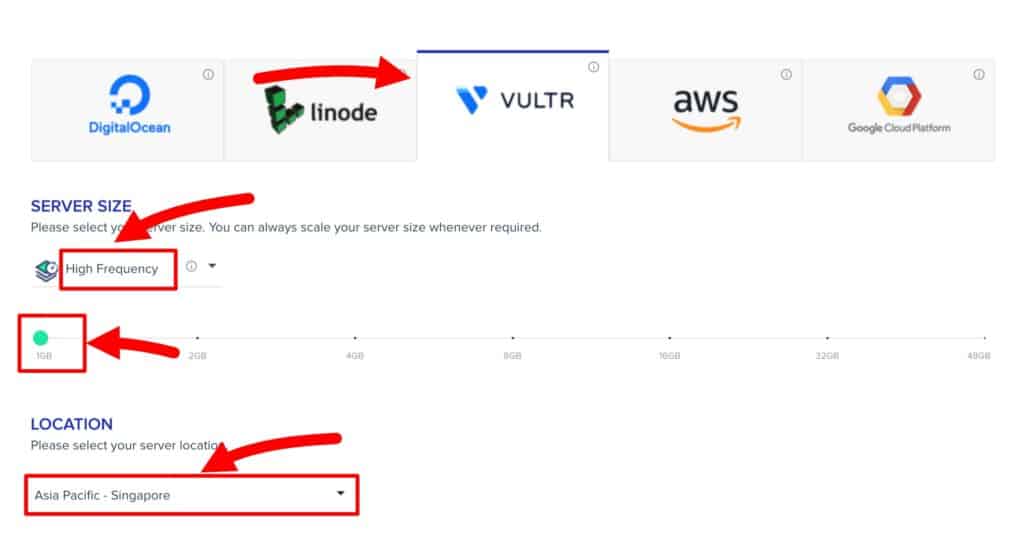
Step 4: In just a few minutes, your cloning process should be completed. Make sure to edit your DNS records accordingly to point to the new IP address. Once you have verified that your new server is up and running, you can proceed to delete the old server that's no longer needed.
If you are looking for a fast, managed, highly reliable and affordable cloud hosting solution, I highly recommend Cloudways. They are suitable for all types of website owners, whether you are first starting out, or if you already have an established website. They have affordable plans, and are easy to scale up when your requirements grow. Check out Cloudways and their plans right here.
Choosing a web hosting provider is daunting, especially if you are new. Website owners like myself tend to jump from host to host, constantly in search for the perfect one. There are plenty of web hosting companies out there, how do you know which is the best?
Rule #1: Choose a web hosting provider that has their servers or data centers located as close to your main target audience.

Where is you main target audience located at? If you are a Singapore-based service, then it is likely that your main target audience will be in Singapore. So you would want to ideally choose a data center or server that is also located in Singapore.
By doing so, you reduce the distance that your website data needs to travel to reach your viewers, and in return, this helps improve your page loading speed.
I see this mistake commonly made by first-time website owners, where they choose hosting providers based on raving reviews online, and failed to do research on the available locations of their data centers. Many of them end up having their websites located halfway across the world.
A good example is Singapore-based websites hosting on Bluehost. Bluehost is a reputable web hosting service that's even recommended by WordPress.org themselves. However, all their servers are located in their data center in Provo, Utah, which is more than 8,000 miles aways from Singapore. Bluehost is great if most of your viewers are from US, but it is not ideal for a Singapore-based website.
Rule #2: Choosing a plan with the right resources for your website

You will need to look into each plan and its specifications for each web hosting provider, as there is no such thing as a 'standard plan' in the web hosting industry. If your hosting provider provides you specifications, here are some things you want to look out for:
Some hosting providers have their plans tied to a monthly visitor cap. Instead of showing you the resources that will be allocated to you, they promise you a well-functioning hosting service so long as you fall under the monthly visitor cap. This makes it easier for website owners who are generally not familiar with the technical aspects of web hosting, and rather have a plan catered based on their overall traffic.
Now to give you an idea, a simple brand new 5-page WordPress-based website with minimal plugins, perhaps only needs a plan that gives a few GB of disk space, 512MB of RAM, 1 core processor, and 100GB bandwidth on a shared hosting. But a plan like this may not perform the same between 2 different hosting companies, especially on shared hosting. This is because some hosting companies may "stuff" more websites onto a single server just to increase their profit margins, at the expense of performance. It is therefore important to go with hosting companies that have a good performance track record.
Shared Hosting, VPS Hosting, Dedicated Server? What are the differences between them?
To put it simply, the differences lie in how the resources are being allocated to each hosting account owner.
Shared Hosting
For shared hosting, your websites are being hosted on the same server, sharing the same set of resources with many other websites. This is fine for a basic website as it is not resource hungry. But since resources are being shared on a shared hosting plan, a "neighboring" website might eat away all the server resources if it goes rogue, causing all other websites in the same server to possibly go down too. However, hosting companies nowadays have monitoring and protective measures in place to minimize such incidences. And also since resources are being shared, this is the most affordable type of hosting plan that will be offered to you.
Dedicated Hosting
On dedicated hosting, all resources are dedicated just for you. No other websites but yours will be hosted on that server. Dedicated servers are expensive because it is the entire server that you are basically renting. They are catered more towards big companies that rely on their web servers as a main part of their business, and cannot afford to have their servers go down at all.
VPS Hosting
In between shared hosting and a dedicated server, you have VPS hosting. VPS uses the concept of sharing a server, but with a big difference: resources are dedicated solely to you, and are not shared. Your website will be "isolated" from other websites even though they are on the same server. This means that you have a very similar experience to a dedicated server, without needing to rent the entire server. Growing websites will find that VPS hosting hits the sweet spot for their web hosting requirements. They are able to choose a plan with the right amount of resources, without the need to break the bank just to rent an entire server.
Remember that choosing a plan that is too powerful for your needs will only lead you to having unnecessary costs for something that you don't need. While choosing a plan that is underpowered, will only lead to your website not performing well, leaving your viewers frustrated. To keep a good balance between performance and cost, you should choose a plan that is the right fit for your website.
Rule #3: Choose a reputable hosting company with a good track record

When a plan is too good to be true, it usually is.
I have seen websites totally disappear within months of setting up because the web owner chose to host with a sketchy company that he found on a forum, that provided a $2 per year web hosting plan. If you think about it, $2 per user is just not financially feasible for the host to maintain a well performing server. Needless to say, it was a huge lesson learnt. Your website is your business, and you want to entrust your hosting to only the hands of the best.
Some good web hosting companies may provide promotional offers that are also really cheap, but these work differently. These packages are part of their promotional campaigns, and they will eventually make their money back through full priced renewals, upsells or any other means. It is important that you are able to identify these promotions, upsells, and what the renewal prices will eventually be.
At the end of the day, it is wise to choose a web hosting company that is trusted by many. Here are some of my recommendations if you are looking to host a Singapore-based website.

Vodien is my number one choice for my basic personal local-based websites as well as for my own client's corporate websites.
If you are running an ecommerce shop, I would suggest skipping shared hosting altogether. But if you are hosting a business website, or websites that are more static in nature, shared hosting is highly affordable and works well enough.
Vodien is a very reputable web hosting company in Singapore, provide superb 24/7 support, have fast servers and provide an uptime guarantee.
I have been using their services for many years. Their shared hosting plans perform very well, and I love that they use the traditional cPanel, rather than heavily bloated control panels that I see in some other hosting services. They also have SSL by Let's Encrypt, enabling your website to be secured through https, which is a must have for websites today.
As of writing, their most basic plan, webValue, allows you to host up to 5 websites with a total of 15GB of disk space, 10 email boxes, and most importantly, unlimited bandwidth! They also have a one-click installer for many applications, including WordPress, and provide a weekly remote backup of your files and folders. If you decide to opt for annual payment, you will also receive further savings. Even though they give you up to 5 websites, you don't need to use all 5 of them. Many of my clients use this plan with just 1 website, as it already provides amazing value. But it's always nice to know that you have options for your other side projects.
One important thing to mention is that they have not just servers, but entire data centers in Singapore. This is definitely a huge plus point as you tend to get dedicated engineers and support team that are always available.
If you are new to web hosting, you simply cannot go wrong with Vodien for its ease, simplicity, reputation and fast loading speeds. They also provide a 30-day money back guarantee in the event you are not satisfied with their services.
Click here to check out Vodien.
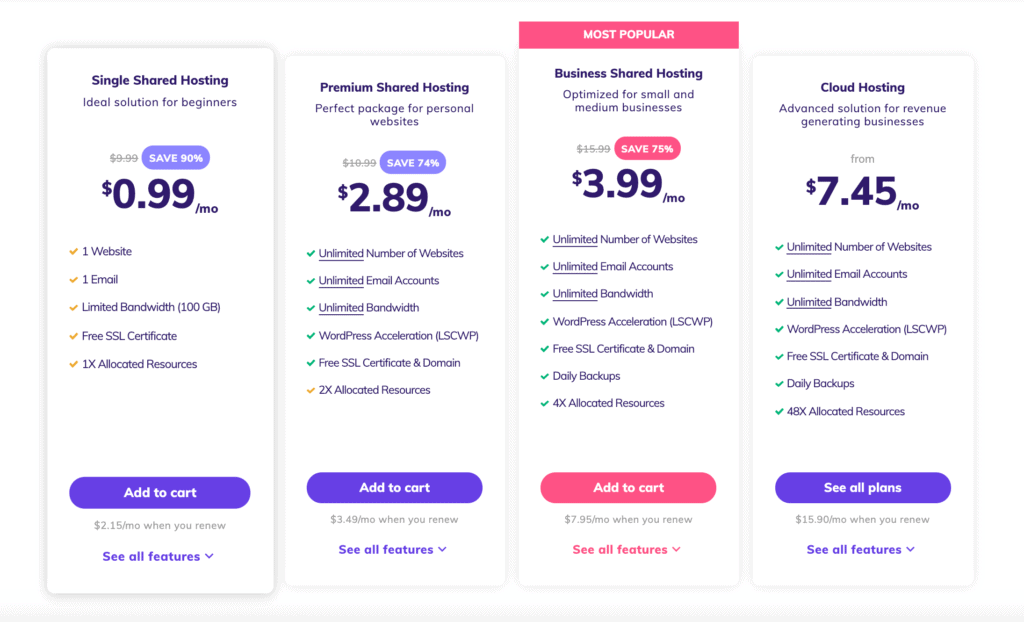
Now if budget is your main concern, and you are looking to go as cheap as possible, Hostinger is definitely for you. Their rates are incredibly competitive, and you actually get decent web hosting performance.
Of many other cheap hosting providers out there, Hostinger is one of the few that I place my full trust in. I have more than 10 websites hosted on Hostinger, and never had a problem with them.
They have a customized control panel called hPanel, which I find much more clunky as compared to the industry standard, cPanel. While it still functions to get your website up and running, at the end of the day, I'm just very familiar around cPanel and really like how fast it performs. I just get things done much quicker with cPanel.
Support used to be one of the greatest I had ever dealt with, considering the kind of price that you pay. Their team was helpful, responsive and a joy to speak with. It's still good now, but just not as good as it was. These days, the live chat seemed to take much longer to get an initial reply. But once a representative connects with you, responses from there onwards are generally quite speedy. I wouldn't worry too much on not being able to get reliable support, as they do get the job done.
So if you are on a tight budget, you probably won't go wrong with Hostinger.
Click here to check out Hostinger.

When your website is seeing serious growth, and you need an upgrade to a VPS, I can only recommend Cloudways. Cloudways provides you access to cloud hosting, which is similar to a traditional VPS, but better in some ways. Cloud hosting uses several servers to host your websites, which means that server loads can be better balanced, uptimes are incredible, and it is VERY easy to upgrade and scale anytime you want. Cloudways also runs on the NGINX web servers and is preconfigured with Varnish Cache, making your sites perform well right out of the bat.
Cloudways does not actually own the servers. Instead, they help you to manage the servers that are provided by your choice of 5 major cloud providers (as of writing). They are, DigitalOcean, Linode, Vultr, AWS, and Google Cloud.
I have tried websites on all 5 of these cloud providers, and all of them are blazing fast. They vary in price points, but even the cheapest one of all, DigitalOcean, loads your website in such incredible speeds. In fact, you might not even be able to tell the difference in page load speeds between these providers.
If you are looking to host an ecommerce site, I would recommend you to skip any shared hosting plan and go for a basic plan on Cloudways instead. Many of my clients here at Dashways are using Cloudways as their host.
One thing to note, Cloudways provides you with only the web server. On top of that you will also need an email delivery service, as well as email hosting, to complete your package.
Their way of pricing their services is very interesting. You will notice that it is always around 2 times the prices that's directly from the cloud providers themselves. So I know what the big question is running in your mind right now: Why not go directly to the cloud providers themselves? Well simple. The cloud providers will provide you with a plain vanilla server, and you need to be able to manage the servers install all necessary softwares yourself. This means that you need to at least have some knowledge in server administration, Linux and how to work with a command-line interface, in order to get things going. However, with Cloudways, they help you to manage and maintain the servers so that you are able to run php-based applications, such as WordPress, with ease. They also provide support for their customers, so that you are not left hanging with the setup process. All these for just a couple of dollars more a month. It's the perfect choice for most web owners out there that want a fuss-free managed cloud hosting service.
Click here to check out Cloudways.
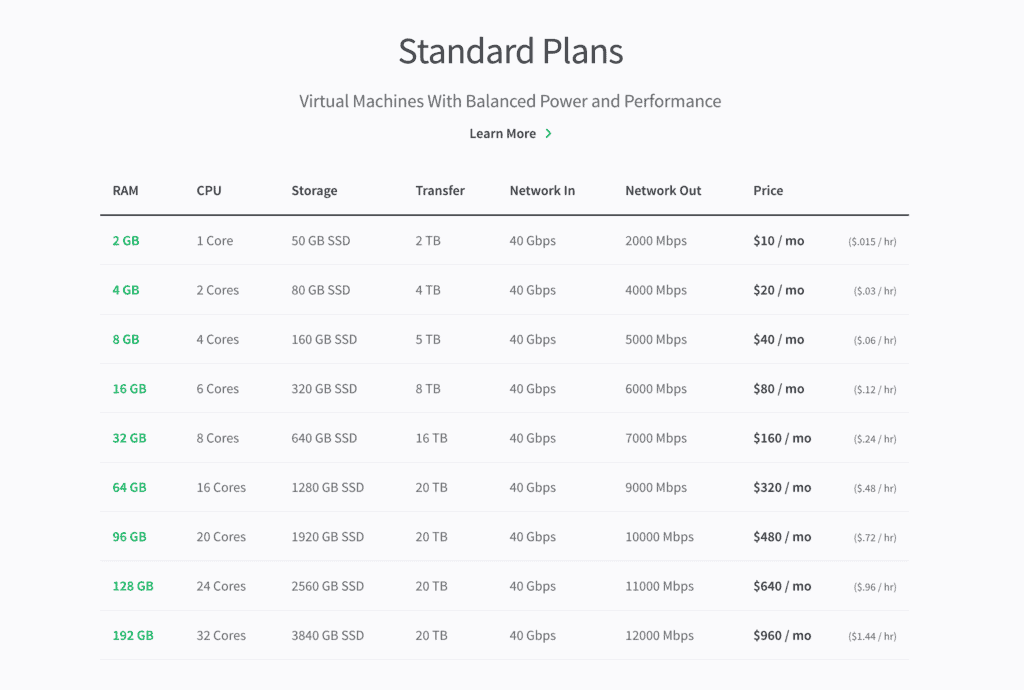
Linode gives you the best performance, for the money you pay, period. But here's the catch. It is generally not suitable for most website owners, as they will have absolutely no idea how to set things up.
Besides just installing all the necessary software to run, you also need to know how to tune the servers and implement caching to get the best performance for your sites.
As for me, I enjoy playing around and experimenting with different servers, and I picked up a fair amount of knowledge in server administration, making me comfortable to set up my own websites on Linode. But the learning curve was definitely steep at the start, and it took me a while to get everything perfectly in order. They have great support, BUT, server administration is not in the scope of support. So, do not expect their team to setup the servers for you. It is also your responsibility to maintain your servers and keep your softwares updated. An option to get started with this is to hire a professional to get all of it done for you.
I recommend Linode if you are a developer, and want a cloud hosting provider with a user-friendly interface, blazing fast speeds with a data center in Singapore, and overall great support from their knowledgeable team.